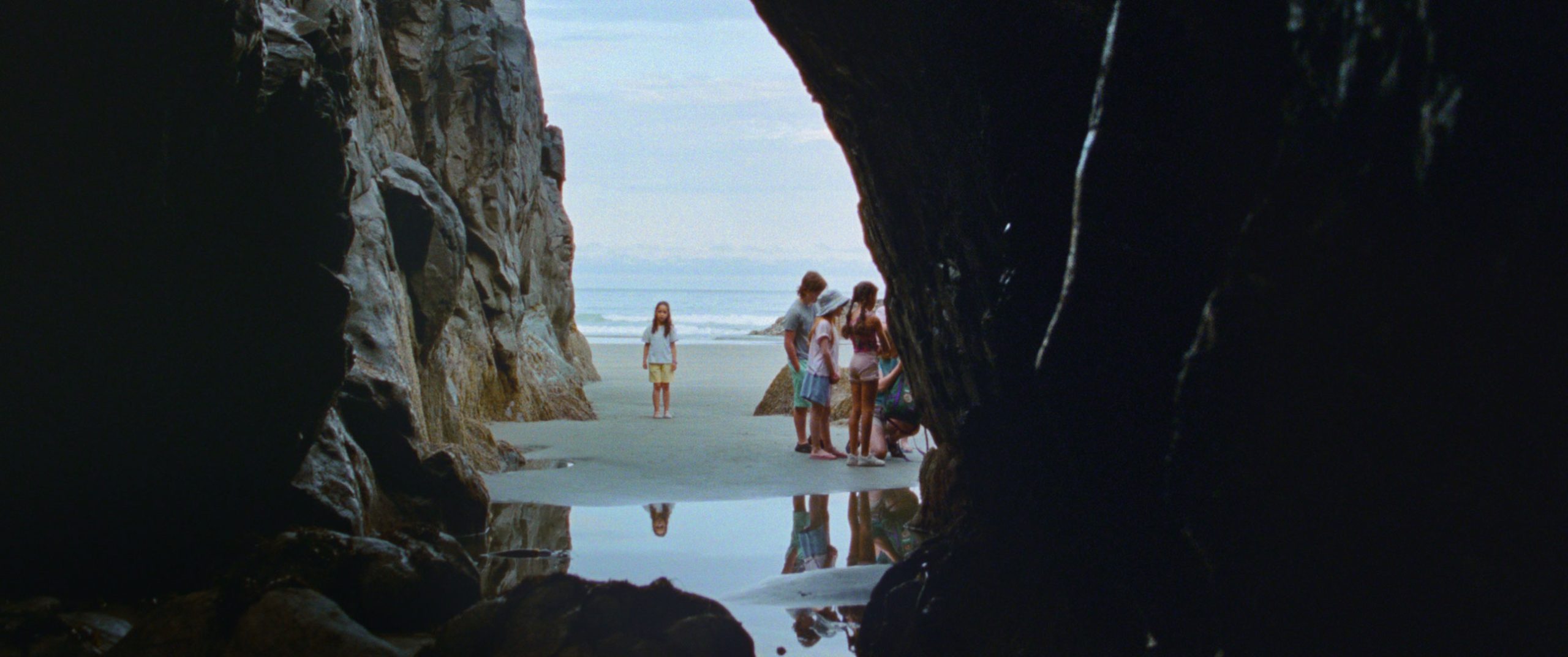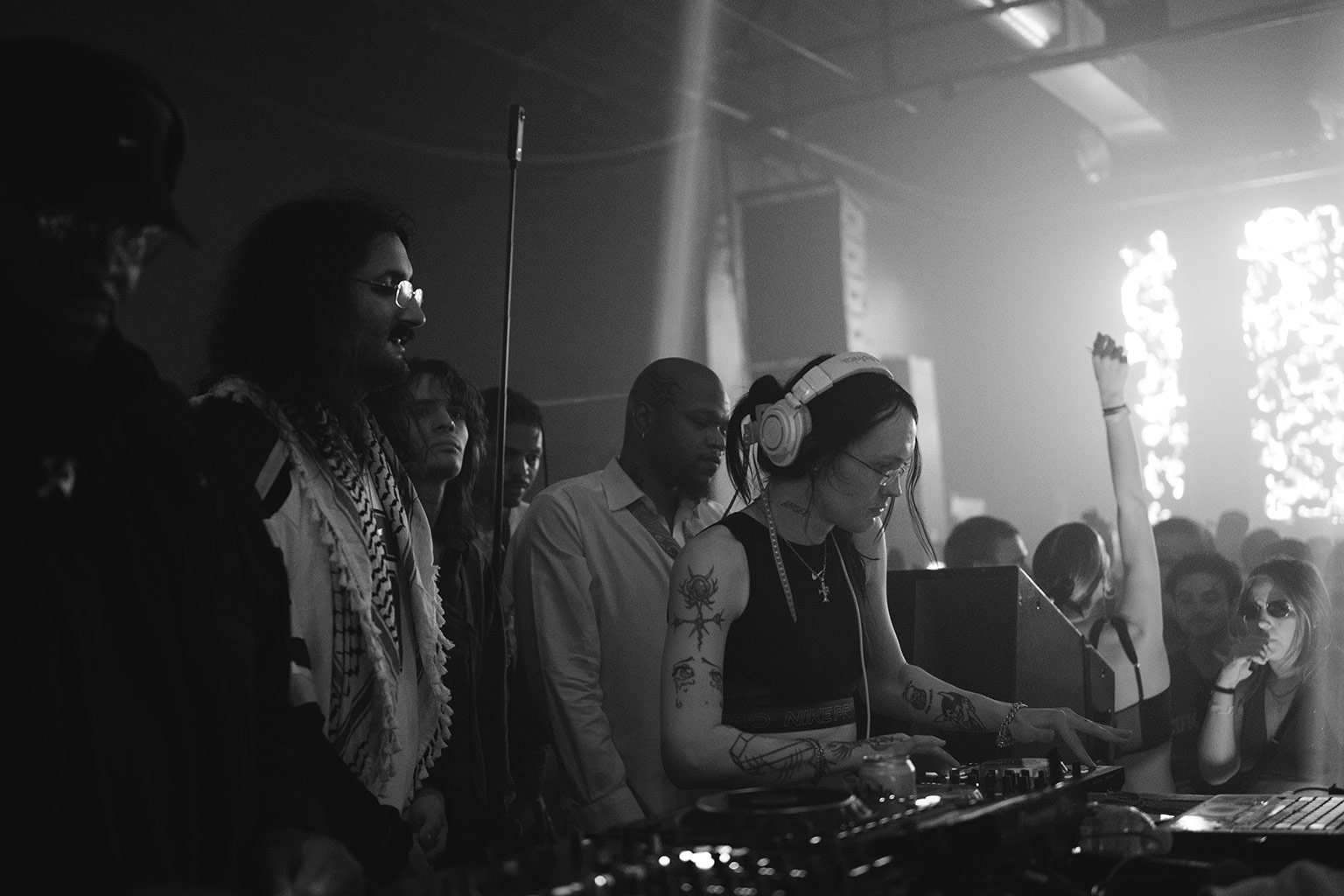As much as Francis Harris‘ new work, Minutes of Sleep, is a record of mourning, it is also a record of motion, which seems to materialize out of the vapor, its form gradually coalescing as it progresses. Storm clouds gather with the opening meditation, “Hems”, and then break with “Dangerdream”. The energy is one of patient inertia; a steady beat finally materializes three songs in with the haunting “Radiofreeze”, dials up to muted minimal techno on “Lean Back”, then glides to the fore in “You Can Always Leave”, the first of a pair of nine-minute centerpieces that the album pivots on. All the while, the momentum has built up so gradually that the distance from Point A to Point B feels closer than it is.

Perhaps more circular than linear, the path that Minutes of Sleep takes from one song to the next still feels like an entirely natural progression. Yet when it comes to the album’s place within his body of work, Francis Harris doesn’t really see any through-lines.
“I think it’s important to not trace a line or talk about the idea of progression,” Harris says, revealing that he sees very little connection between this record and any of his previous work. “I find the idea of focusing on one concept at a time to be rewarding, as it keeps you in the present, at least conceptually.”
A New Face in an Old Name
Leland, the 2012 release on Harris’s own label, Scissor & Thread, was also the first collection of his songs to come out under his real name. For years before that, he made electronic dance music under a variety of aliases, such as Adultnapper. It would be a natural assumption to imagine that an artist’s reversion to working under his real name would indicate a turn towards making music that is more revealing of that artist’s true self. As Harris tells it, though, there was no real grand scheme for releasing the records under his own name.
“It was simply a conscious decision to not hide behind fictional monikers in order to approach the projects head-on, with a clear focus on the work itself, rather than worrying about all the trappings of image and presuppositions that come along with a change of sound or approach to the material,” he explains. “I wanted a clean slate, so to speak, in order to build the house I wanted to build without any expectations.”
In what could be seen as a subtle subversion of another expectation that cones with releasing music under Harris’ own name, Minutes of Sleep finds him working with other musicians more than ever. For over ten years prior to the creation of Leland, his tendency was to work alone. That method, however, was never necessarily intentional.
“It was more about a sense of self-education,” recalls Harris. “Working with others, in a way, reflects a level of confidence in the authenticity of your own work. I look at collaborations as conversations. They are only interesting and worthwhile when they reflect two voices that contribute equally.”
Just as working alone for all those years had more to do with circumstance than any specific intent, the decision to finally collaborate with others – in the creation of increasingly personal musical statements, no less – wasn’t the outcome of deliberation. Both Leland and Minutes of Sleep were inspired by deeply personal events such as the loss of a parent, but Harris had no difficulty opening up with others through songs infused with such strong emotions. As someone who feels deeply for his friends and family, Harris felt that crossing the bridge to work with the musicians that he did – most of which were his friends – seemed altogether natural.
“I find collaboration to be an essential aspect of any creative process,” he explains. “Call me a bit of a Marxist, but it takes the sense of self out of the rigidity of codified identity, as, by nature, collaboration forces you to think outside of yourself and in relation to the discourse of others.”
“Music that Exists in a Real Space”
One of the most arresting and prominent collaborations of Minutes of Sleep is its final track, musician and public speaker Terre Thaemlitz’s remix of “Dangerdream”. Stretching the song’s windswept landscape across nearly fifteen minutes, the remix also possesses a palpable physical quality. Amongst the unsettling undulations in the track is a repeating high frequency clicking that, when one listens to the track on headphones, can actually be felt, like a phantom tapping in the throat. As Harris confirms, this is not a fluke.
Terre describes the clicking as the kind of sound used in electronic animal repellant devices, and, in his words, was used as “a material or physical entry point for the recurrent theme of mourning.” Harris extrapolates, “I think what Terre is getting at… is the idea of disruption as a different entry point for the central theme of the album, being the difficulty that arises in addressing grief in any mode of representation. Disruption, by nature, demands attention, as it forces an immediate physicality with relation to the music.”
The overall effect of the inclusion of such physical sounds makes for dislocated and mournful music that causes a minor level of actual disorientation on the part of the listener.
“In speaking with Terre about this, his approach, which is quite fitting for the theme of the album in general, is ‘to disrupt the usual transcendental-orientated listening methods that come with this genre’, in order to keep listeners in what he calls ‘an active listening [state],'” explains Harris. “This approach, I feel, fits perfectly with the overall approach to the album, as, unlike Leland, Minutes of Sleep, is less a requiem, and more a conceptual look at the difficulties addressing grief within a closed system of representation, and moreover, the further difficulty of the push and pull between private and public displays of mourning.”
With the exception of “Lean Back”, Minutes of Sleep was all written within a period of three months. Tracking the various players, and then finding a location to do the final mixes, required a bit more time. From start to finish, the process of making the album took over a year, not including the initial months that Harris spent creating the sound beds from collections of found recordings – which are at least in part responsible for the haunting warmth of Minutes of Sleep.
Significant use of analog equipment went into the making of the album. Considering what working with that kind of machinery can bring to music that can’t be achieved strictly with digital equipment, Harris believes that “bringing things out of the box is bringing the music into a real physical environment.” However, he also doesn’t like to make value judgments with regards to digital versus analog production.
“At the end of the day, it’s a matter of what you are trying to accomplish. For my solo work, my desire was to write music that exists in a real space, in the air, or…in [the] sort of muck that is our existence. Thus, the noise. Lots of flies on the wall like to comment on the noise prevalent in the album, if it was a mistake or intentional…” Harris muses. “I think in general, listeners are so used to pristine clean production, that anything that deviates from this is somehow a mistake, which actually doesn’t really bother me, as, at the very least, it’s the impetus for a real conversation about the nature of sound. Often, we have to be disturbed into thought, so if the debate about the sonic nature of my recordings does this, then I’m quite happy to oblige.”
Not What, But How
Harris’ work, both past and present, has been described as seeking to “humanize” electronic music. Even if he has spoken to that effect in the past, Harris tends to steer clear of using that word in discussing his own work, as it could be confused with a certain specific conceptual approach that he doesn’t see as coming near to how he is approaching his current work.
Francis Harris – Minutes of Sleep Full Album Stream
“I think that there is a big difference between what some call analog and how I, if forced to, would categorize my work. In dance music, especially, there is sort of a trend to fetishize analog synthesizers and drum machines, as if they are the prime movers for creative endeavors. I think there is a problem with this sort of equivocation, as it puts products before the work itself,” Harris says. “It is not what you make things with that’s important. Rather, for me, it’s more interesting to ask yourself, ‘What is your process, and how does it reflect your conceptual approach?'”
Harris’ conclusion is that to fetishize the analog as being better than the digital is to engage with the work as a consumer, rather than someone who “is interested in seeing through a critical process that just might raise some questions about the relationship of creative processes and the forces that tend to shape it.”
Questions like those are alive throughout Minutes of Sleep, though – rippling amidst the layers of texture, seeking and providing solace over repeated listens. Despite the artist’s own understandable aversion to applying the word, it is nonetheless a very human record. The most affecting emotions that shape it are both intensely personal yet also relatable – universal even. That deeper bond with the audience is symbolized in Harris’ discarding of his previous personas, suggesting as it does a more revealing openness in the artist’s work. Even if from here he were to head in yet another direction under yet another different name, the effects of that connection are likely to remain.
Ω






